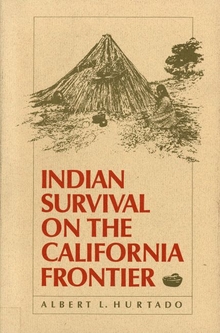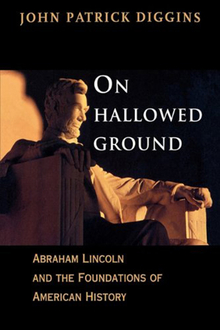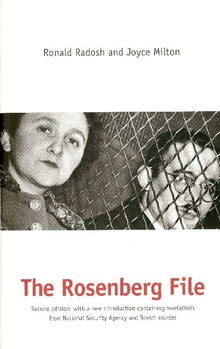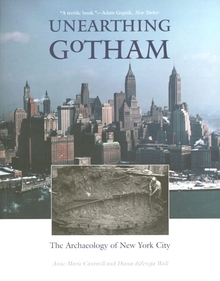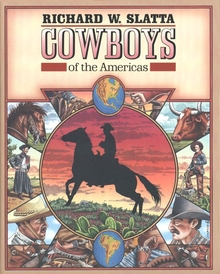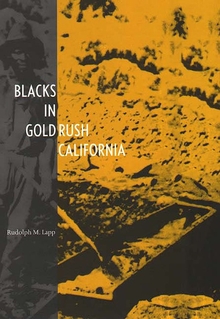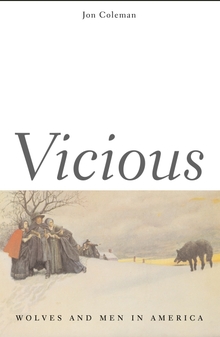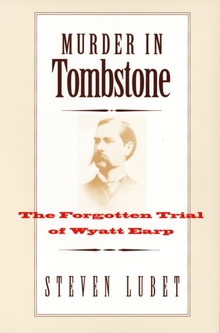Indian Survival on the California Frontier
WARNING
You are viewing an older version of the Yalebooks website. Please visit out new website with more updated information and a better user experience: https://www.yalebooks.com
Albert L. Hurtado
Out of Print
"This latest revision of the history of American Indians in California is well worth reading and pondering."—Henry F. Dobyns, The Historian
"In Indian Survival on the California Frontier, Albert L. Hurtado centers his study on the history of several northern inland tribes in California during the mid-nineteenth century. In this endeavor, Hurtado not only proposes to present a fresh perspective on the Indian-white relationship in California but also to center on the survival strategies of California Indians. . . . Hurtado’s work provides a useful addition to other historical treatments of the California Indians because his scholarship is exhaustive, building as it does on other historical and anthropological studies. This book is also refreshing because the author fills an important gap in our knowledge by giving special attention to the role of economic and gender issues in the survival of California Indians."—Jennie R. Joe, Journal of American History
"Well written and well researched, Indian Survival on the California Frontier adds a new dimension to the plethora of works relating to history of the Native American and federal Indian policy. Scholars and laymen alike will want to add this book to their libraries."—Necah Stewart Furman, Journal of the West
"Employing dependence and modernization theories, along with the concepts and methods of social and family history, historical demography, and statistical analysis, Hurtado displays an ethnohistorical sensitivity to non-Western cultures. . . . Hurtado has produced a sophisticated study that, by suggesting both the typical and the distinctive in Californian race relations, should force scholars to question their generalizations about Indian experiences in the United States."—Michael C. Coleman, American Historical Review
"A welcome addition to California Indian History. . . . Albert Hurtado has written an exceptionally detailed book. Using a vast array of archival data, he documents the usual population decline found in most European-Aboriginal contact situations, identifying disease, hunger, and violence as the primary reasons for the plummet in the numbers of Indians. . . . An important step toward our understanding of the California Indian."—David Hornbeck, The Journal of Arizona History
"By focusing on how California Indians coped with Spanish, Mexican, and Anglo-American newcomers, Hurtado revises some long-standing misconceptions. . . . Ten chapters contain a complex analysis in which Hurtado compares native and immigrant families. . . . Well-chosen photographs visually reinforce the textual messages. This latest revision of the history of American Indians in California is well worth reading and pondering--librarians, please take note."—Henry F. Dobyns, The Historian
"Hurtado provides a thorough and useful historical discussion of the way in which the native peoples of California coped with the massive influx of alien people in the mid-nineteenth century. This book has several features not common in the extensive literature dealing with Indian-White contacts. . . . I am impressed at the wealth of records Hurtado has found and consulted, including manuscript materials and references that are rarely cited or used. . . . Hurtado provides extensive discussion of the use and misuse of Indians as part of the labor force in California. . . . The contribution of Hurtado’s volume is the demonstration that Indians did survive in multiple ways and were not simply eliminated from California."—Clement W. Meighan, Southern California Quarterly
"The book . . . represents considerable painstaking research and has a readable style."—W. Eugene Hollon, Journal of the Early Republic
"A valuable addition to studies of California Indians. And it reminds us again of man’s inhumanity to man."—William T. Hagan, Journal of American History
"Albert L. Hurtado has chosen to focus his attention not on the process of Indian decline but rather on the strategies that permitted a remnant of native people to survive. More specifically, he offers an interpretive survey of Indian-white relations in north central California from roughly 1820 to 1860. . . . A welcome addition to our understanding of the history of the first Californians."—James J. Rawls, Pacific Historical Review
"The book offers not only a striking reinterpretation of California native life in the 1850s, but it constitutes an opening contribution to what will surely be a rich new historical literature."—Frederick E. Hoxie, Western Historical Quarterly
"It combines an intelligent awareness of theoretical issues in sociology and anthropology with careful historical scholarship to address issues that were crucial in nineteenth-century California, and in many, albeit modified, ways relevant today."—Thomas D. Hall, Journal of the Southwest
"An important contribution to Native American ethnohistory."—Choice
"An ingenious examination of cultures in collision that attempts to identify which elements in Indian society survived, and which died."—Bruce Brown, Washington Post
"Anyone interested in California Indians should read this book."—William Bright, Los Angeles Times Book Review
"Hurtado takes a fresh look at the role native Americans played in shaping frontier California. The Indians emerge from this study not merely as victims of white rapaciousness but as an active historical influence, serving as both resistance force to white incursion and as prime shapers of the agricultural work force."—Booklist
"A wide-ranging and imaginative discussion of significant issues that are at the very center of scholarship on Western settlement during the nineteenth century."—Roger Nichols, University of Arizona
Winner of the 1989 Ray Allen Billington Prize awarded by the Organization of American Historians for the best book in American Frontier history
ISBN: 9780300041477
Publication Date: September 10, 1988
Publication Date: September 10, 1988
332 pages, 6 1/8 x 9 1/4
22 b/w illus.
22 b/w illus.

